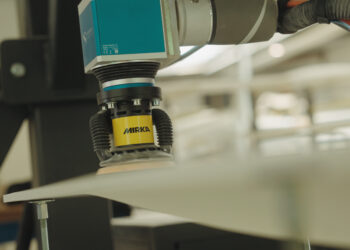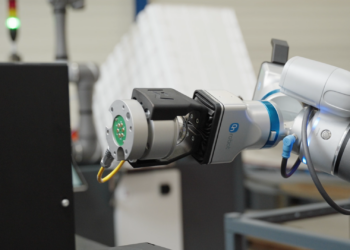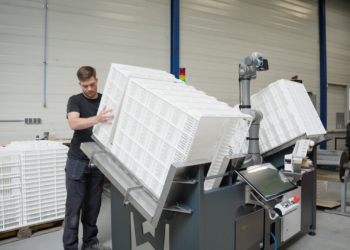Labour shortages and cost pressures drive automation
Multifill is a leading company producing cleaning products for both the professional and consumer markets. With a strong focus on flexibility and customer focus, Multifill offers solutions for a wide range of packaging formats and production volumes. Historically, the company has always relied on manual processes, which allowed them to switch quickly and flexibly between different production lines. However, increasing pressure from the market to reduce costs and the growing challenge of finding suitable personnel prompted Multifill to automate their processes.

The challenge
The challenges Multifill faced were twofold:
Cost pressures
The market demands ever cheaper products, which means companies have to operate more efficiently.
Labor shortages
It became increasingly difficult to find sufficient and reliable personnel. This affected the continuity and quality of the production process.
A specific challenge was in palletizing boxes. This heavy, repetitive work was performed manually, which was both time-consuming and stressful for employees. Multifill was looking for a solution that would not only reduce the labor burden, but also increase the efficiency and quality of the process.
The solution: five cobot palletizers
Multifill partnered with WiredWorkers to implement cobots (collaborative robots) into their palletizing process. Cobots were chosen for their flexibility, ease of use and ability to safely collaborate with people in the same work environment. The implementation process began with the installation of one cobot to gain experience and get employees used to this new way of working. After the success of this pilot, a total of five cobots were implemented.
Watch the video below where Pascal Burghouwt, Plant Manager at Multifill, talks about their choice of automation and the cooperation with WiredWorkers.
Results
The automation of the palletizing process provided Multifill with significant benefits:
Continuity
The automation of the palletizing process has brought Multifill significant benefits. One of the biggest improvements is continuity. Where manual processes depended on the availability and health of employees, the cobots now ensure uninterrupted production. They are never sick, take no breaks and can work consistently, resulting in a stable and reliable process. This not only increases productivity, but also ensures that deadlines are more easily met.
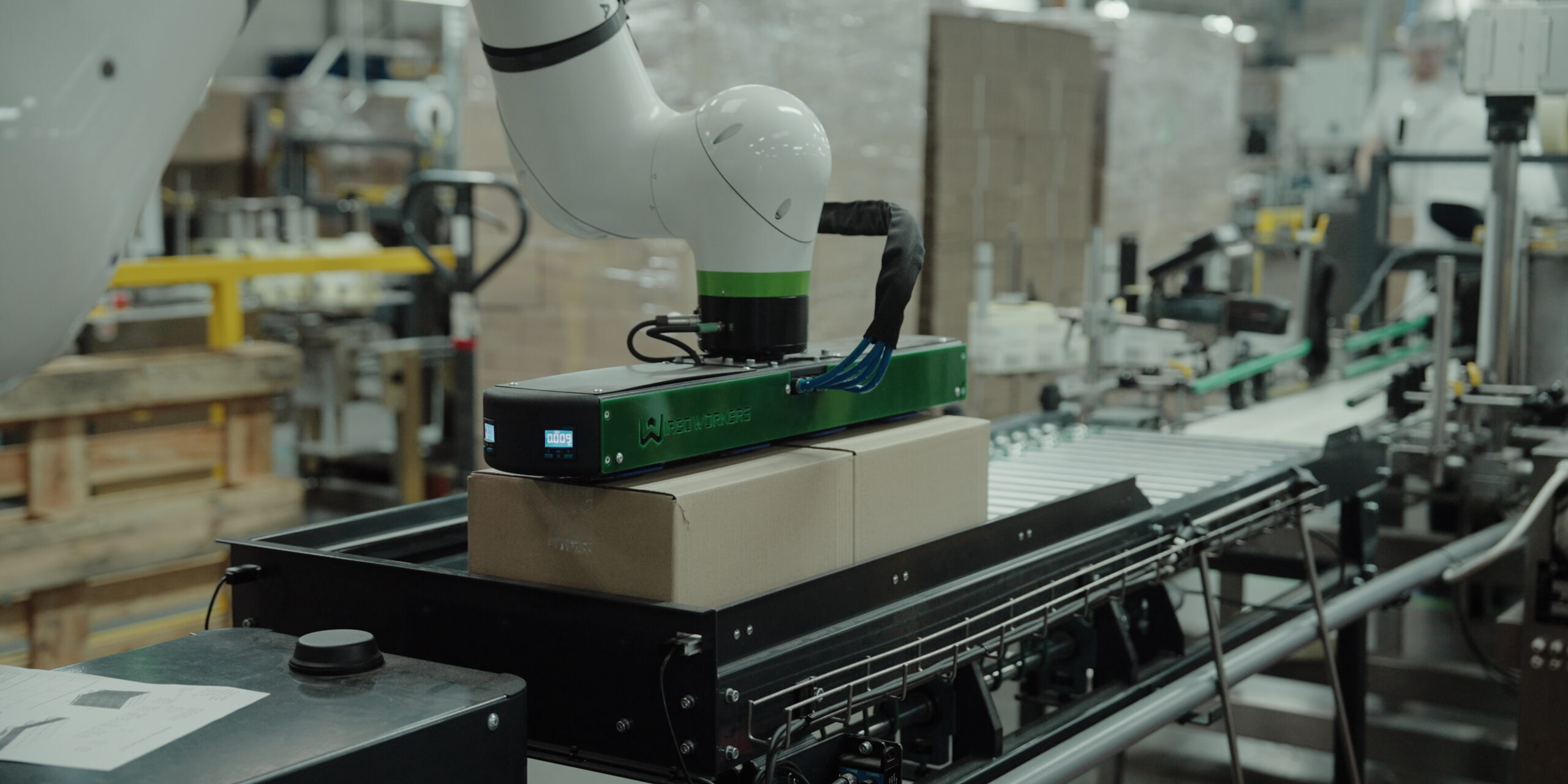
Cost savings
In addition, the cobots have resulted in substantial cost savings. By reducing the amount of manual work required, personnel costs could be significantly reduced. The investment in cobots proved particularly profitable, with an attractive payback period that was quickly realized.
Quality of work
The quality of work also improved. The cobots consistently position boxes the same way and in the same place, resulting in higher quality pallets. This precision allows products to be transported to customers more safely and efficiently, increasing customer satisfaction.
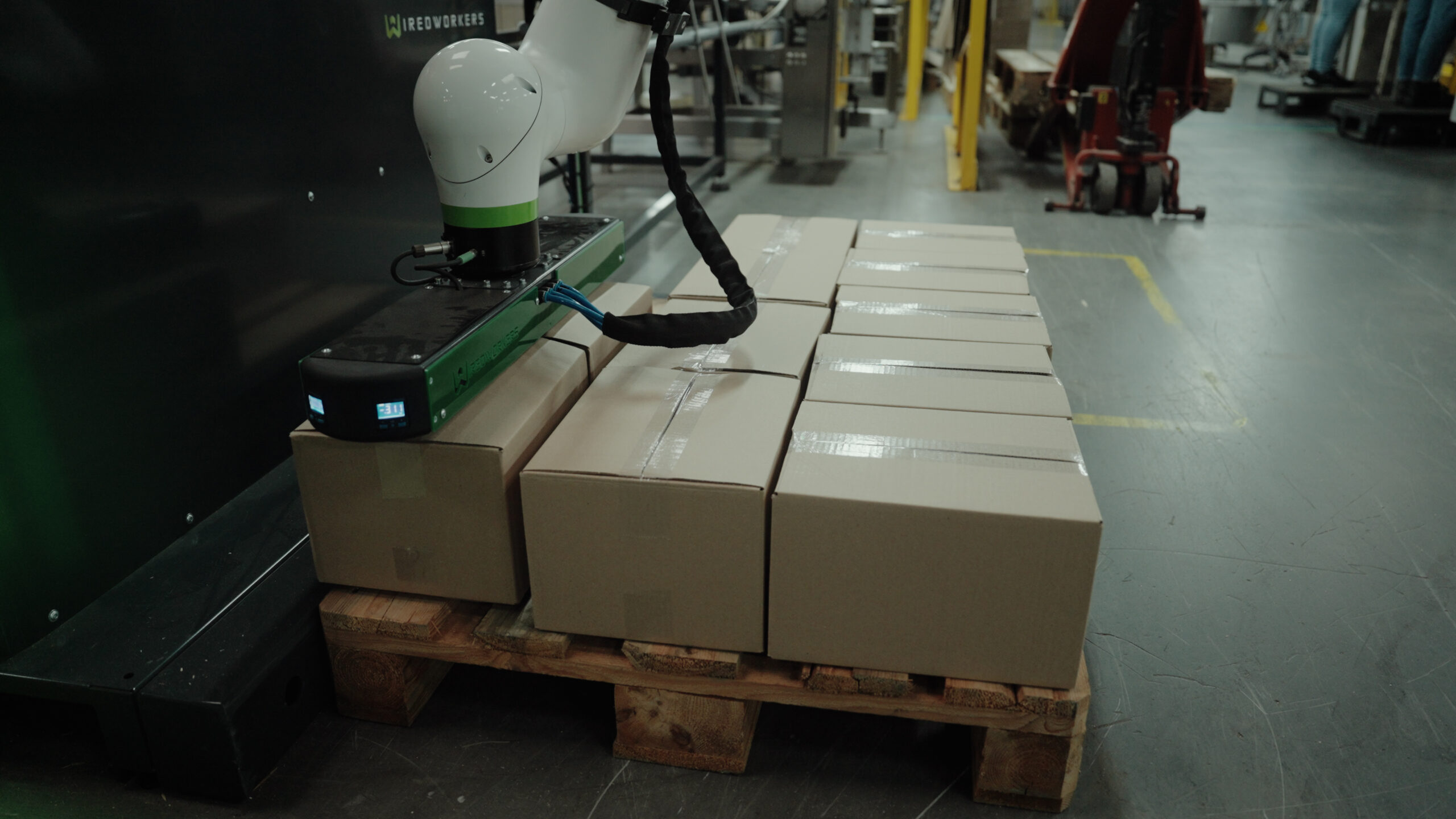
“You can see that with the cobots, the continuity and quality of our process have improved significantly. Boxes are placed consistently and precisely, leading to higher quality pallets that are ready for immediate shipment.”
Working conditions
Finally, automation has had a positive impact on working conditions. The heavy and repetitive work previously performed by employees has now been taken over by the cobots. This reduces physical strain and increases job satisfaction among staff. This change allows Multifill to position itself as an employer that cares about the well-being of its employees.
Partnership with WiredWorkers
Cooperation with WiredWorkers was smooth and effective. Because cobots were a relatively new concept for Multifill, a phased implementation was chosen. WiredWorkers provided guidance during every step of the process, from initial installation to the full integration of five cobots. This phased process allowed Multifill to properly manage both the technical and human aspects of this change.
What does the future hold?
With the successful integration of cobots, Multifill has laid a solid foundation for further automation. This enables them not only to work more efficiently, but also to respond better to future challenges in the market. Moreover, this approach provides an example for other companies striving to combine flexibility and automation.
Conclusion
The implementation of cobots at Multifill is a clear example of how companies can improve their processes through automation while responding to changing market needs. With the support of WiredWorkers, Multifill not only secured the continuity and quality of their production process, but also created a sustainable and future-proof solution.
Interested in implementing cobots in your production process? Contact us or book a free online consultation.


